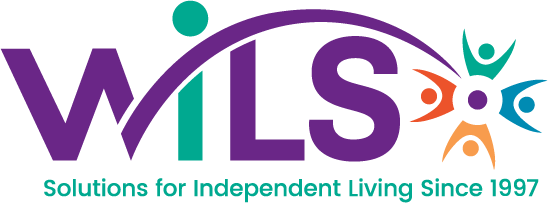
Why advocacy matters now
Missourians with disabilities face increasing threats to their independence, health, and dignity. Proposed cuts to Home & Community‑Based Services (HCBS) care at home programs, healthcare benefits including Medicare & Medicaid, SNAP food benefits, and new work‑reporting mandates put our ability to live and thrive in our own homes at serious risk.
How you can be heard- Call or Email
Your voice has power. Contact your state and federal legislators to share what would happen if you did not have these programs and services. What kinds of things would you have to stop doing?
Let them know:
- What services you receive (like personal care at home, health care benefits, or food assistance)
- How these programs help you live independently and stay in your community
- What you would lose or have to stop doing if these services were cut or made harder to access
Would you be forced into a nursing home? Would you miss doctor’s appointments or go without food? Would you lose your job or caregiver? Tell your story—because lawmakers need to hear directly from the people whose lives are most affected.
What’s at Stake
Cuts to HCBS and CDS could force people from their homes into institutions. Medicaid and Medicare reductions would increase healthcare costs, limit access to care, medications, and in-home support. SNAP food benefit cuts would increase food insecurity and worsen health outcomes for low-income individuals and families. Harmful work-reporting requirements threaten to disqualify people from benefits due to complex and unrealistic rules that don’t take into account the lack of administrative report to collect this information, personal health fluctuations, caregiving responsibilities, or disability-related barriers. These combined threats put lives and independence at risk—and now is the time to speak up.
Please help us advocate! Share with your friends and family how important these programs are to you and your community. Please spread the word to raise awareness and generate support.
Missourians with disabilities want to remain independent in their own homes. The federal and state governments needs to prioritize this funding in their annual budget. Take action today—your voice can make the difference in protecting care at home programs, Medicaid, Medicare, SNAP, and defending our right to live in community.
Self-Advocacy
WILS encourages, supports, and assists consumers to strengthen their disability advocacy and self advocacy skills through communication, letter writing and face-to-face meetings.
WILS strives to enable individuals with disabilities to effectively exercise their rights to obtain services and benefits. An Independent Living Specialist works closely with the consumers to instill advocacy skills that allow the consumer to become a self-advocate. WILS also works with local, state and federal entities to obtain equal access to opportunities in the community.
Disability Advocacy
Becoming involved in disability advocacy and self advocacy are critical to independence and it starts with knowing more about disability rights.
- The National Council on Independent Living (NCIL) has an Advocacy & Action Center that allows you to contact your elected officials about the most pressing concerns of the Independent Living Movement.
- The Americans with Disabilities Act (ADA): The ADA is a civil rights law that prohibits discrimination against individuals with disabilities in all areas of public life, including jobs, schools, transportation, and all public and private places that are open to the general public.
- The Fair Housing Act: is a federal act in the United States intended to protect the buyer or renter of a dwelling from seller or landlord discrimination.
- The Rehabilitation Act: prohibits discrimination on the basis of disability in programs conducted by federal agencies, in programs receiving federal financial assistance, in federal employment, and in the employment practices of federal contractors.
- The Individuals with Disabilities Education Act (IDEA): is a four-part (A-D) piece of American legislation that ensures students with a disability are provided with Free Appropriate Public Education (FAPE) that is tailored to their individual needs.
Advocacy Benefits
- 96.4% of the individuals who received advocacy services in obtaining access to benefits, services and programs were satisfies with the assistance they received
- 82.1% indicated they gained knowledge, skill and/or independence from the Advocacy service
- 92.8% indicated the Advocacy service they received made a positive change in their life
- “Helped me to remain in my home.”
- “Increased my independence.”
- “People with disabilities need to be independent and to choose things that give us independence advocacy helped me with these choices.”
- “I was able to obtain food stamps.”
- “Helped me to receive cheaper rent.”
- “Gave me the ability to learn a new skill to go back to work.’
- “Helped me get my disability so I can pay my bills.’
- “I learned more about Medicaid.”
- “Helped me be able to choose who I wanted as my care attendant.”
- “I understand how to stand up for myself.”
- “I am better prepared to speak up for myself.”
